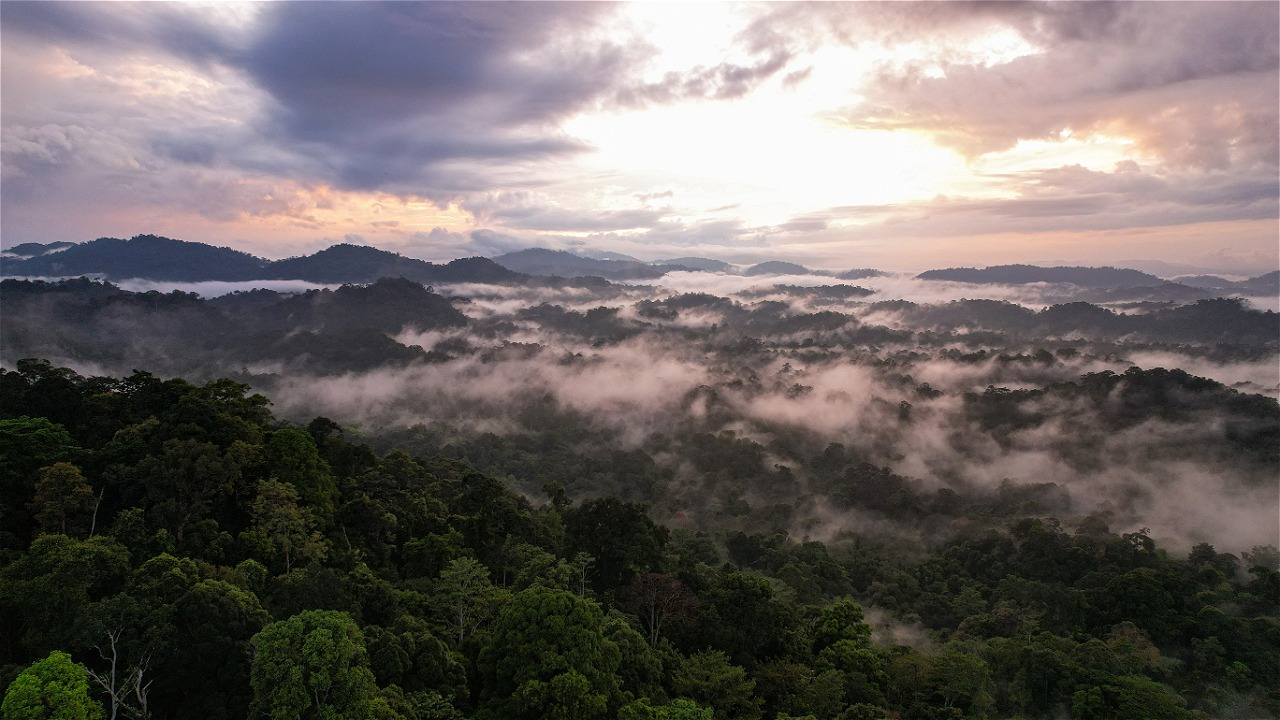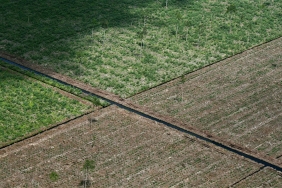TAKE CARE OF THE FOREST BECAUSE THE FOREST WILL TAKE CARE OF YOU
By: Jelfi
WWF conducted survey on local food varieties in three villages; Tewang Karangan, Dahian Tunggal, and Tumbang Lawang in Katingan district. As a matter of fact, the local community in Central Kalimantan, unlike their counterpart in Sumatera and Bali which are known for their more advance agriculture, is generally knows as gatherer directly from the forest, therefore, they are heavily depend on the availability of natural resource from the Forest. This became a challenge where now a days, the land conversion especially for palm oil plantation gradually evaporating the availability of lands as a home for local food supply.
However, the survey which were currently taken in early December shown that there are approximately around 42%- 62 % of non-paddy food resource were still gathered directly from the forest. The result strengthen the fact that there is still huge amount of dependency to the forest. In Addition, a researcher from Palangkaraya University once discovered that there were several local vegetables which contain more Vitamin C than Tomato. This fact stressed the richness of nutrient can be exploited from local food variety.
WWF also conducted a survey of fish varieties in Katingan Hilir, Sebangau. It’s found that Central Kalimantan has more varieties of snake head fish compare to any other place in Indonesia. There are around 6 varieties of it which are; Toman (Channa micropeltes), Bujuk (Channa lucius), Gabus/Haruan (Channa striata), Mihau (Channa bankanensis), Kerandang (Channa pleurophthalma), Peyang (Channa marulioides).
Both of the surveys also shown us that there is still various variety of local food resources in Central Kalimantan, a capital for food security in the regional level. This biodiversity must be protected for future food security by engaging stakeholders both from the government and private sector. For comparison, once there were abundant amount of fish resource in Danau Sembuluh, Seruyan which in 2013 has been vanish due to several reasons.
Furthermore, beside surveying the variety of fish, WWF assisted local community by initiating cooperation called Koperasi Lauk Sumber Pembelum Syariah (KLSPS) that now has been successfully transform into a prominent local buyer that benefitting fisher folk in 13 villages in Katingan district. KLSPS bought fish from the fisher folk with higher price and cutting the middle man that once were acting as a sole buyer for the fisher folk. KLSPS directly sold it to traditional market in Central Kalimantan, therefore increased fish price for fish folk around 30%.
By assisting them with market linkage, the fisher fork gained benefit and be more aware of the importance of a healthy Sebangau Forest that will eventually provides them with abundant amount of fish. Because the forest acts as fish bank, as well as ensuring the current of the Sebangau river as the habitat for the fish. They already aware that if they Protect the Forest the Forest will provide them with food resource.





